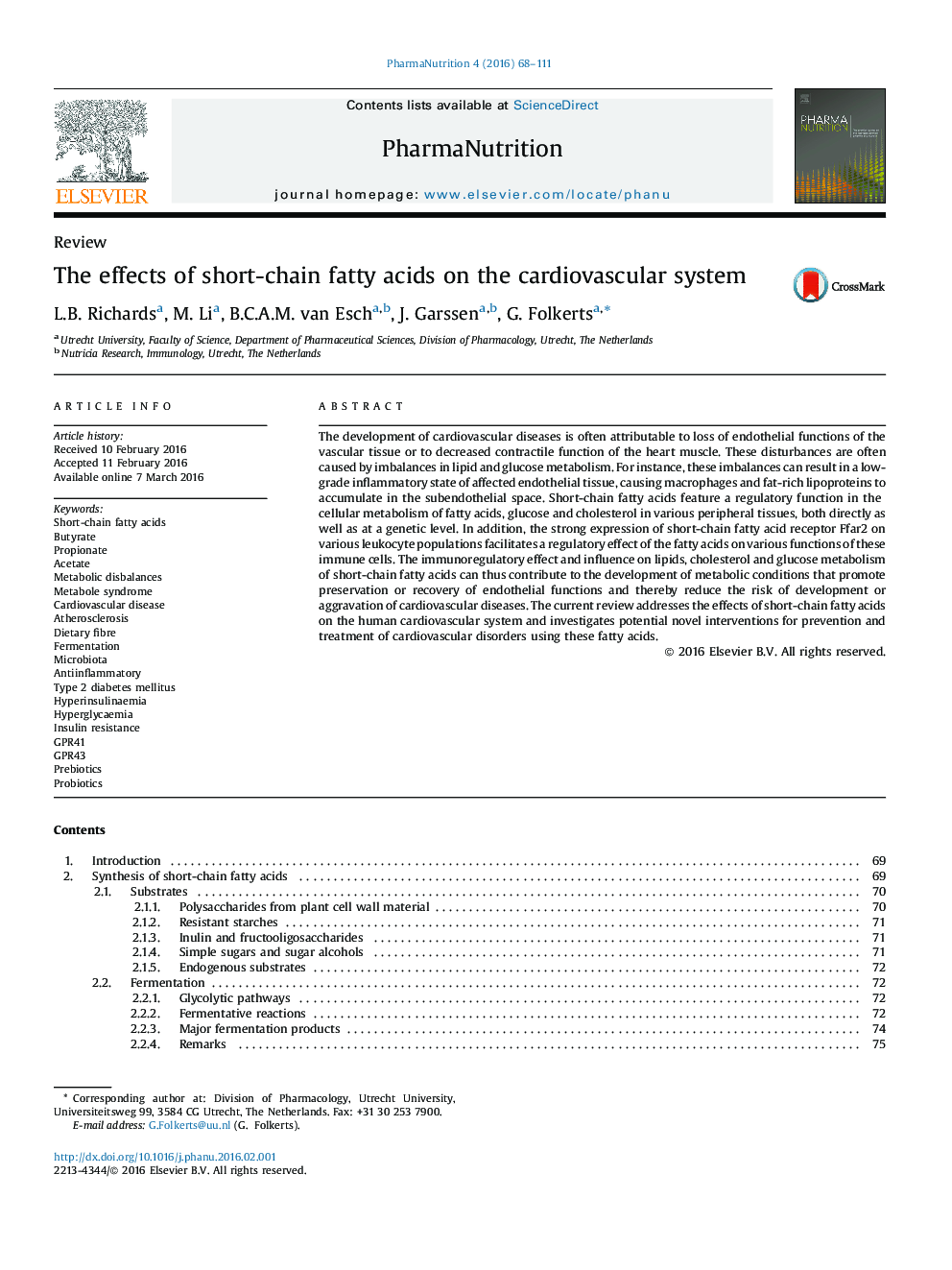| کد مقاله | کد نشریه | سال انتشار | مقاله انگلیسی | نسخه تمام متن |
|---|---|---|---|---|
| 2564400 | 1127969 | 2016 | 44 صفحه PDF | دانلود رایگان |
• Cardiovascular disorders are mainly caused by a loss of endothelial functions, or by accumulation of triglycerides in the heart muscle due to imbalances in the metabolism of lipids and glucose.
• Short-chain fatty acids are able to restore the imbalances in lipid and glucose metabolism, and thus can make a contribution to the prevention and treatment of cardiovascular diseases.
• Butyrate and propionate have the ability to regulate various functions of immune cells and can counteract the low-grade inflammatory status of affected endothelial as to minimise the loss of endothelial functions.
• In the case of atherosclerosis, short-chain fatty acids can inhibit the formation of foam cells, the influx of monocytes as well as reduce the production of pro-inflammatory cytokines by the endothelium, and thus contribute to recovery of endothelial dysfunction.
• For the development of robust therapies with short-chain fatty acids or pre- and probiotics based therapies, in which the production of fatty acids is stimulated, some aspects are still insufficiently mapped, making it unclear whether all preconditions for correct treatment can be met.
The development of cardiovascular diseases is often attributable to loss of endothelial functions of the vascular tissue or to decreased contractile function of the heart muscle. These disturbances are often caused by imbalances in lipid and glucose metabolism. For instance, these imbalances can result in a low-grade inflammatory state of affected endothelial tissue, causing macrophages and fat-rich lipoproteins to accumulate in the subendothelial space. Short-chain fatty acids feature a regulatory function in the cellular metabolism of fatty acids, glucose and cholesterol in various peripheral tissues, both directly as well as at a genetic level. In addition, the strong expression of short-chain fatty acid receptor Ffar2 on various leukocyte populations facilitates a regulatory effect of the fatty acids on various functions of these immune cells. The immunoregulatory effect and influence on lipids, cholesterol and glucose metabolism of short-chain fatty acids can thus contribute to the development of metabolic conditions that promote preservation or recovery of endothelial functions and thereby reduce the risk of development or aggravation of cardiovascular diseases. The current review addresses the effects of short-chain fatty acids on the human cardiovascular system and investigates potential novel interventions for prevention and treatment of cardiovascular disorders using these fatty acids.
Journal: PharmaNutrition - Volume 4, Issue 2, April 2016, Pages 68–111
